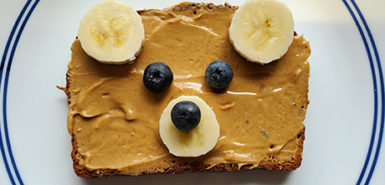
The final bell has rung. The final bus has settled into its summer parking spot.
And with a final flick of their bookbags, your kids have become omnipresent. They’ll be within earshot all summer long—exploring, playing, vacationing, reading and creating.
And, of course, eating.
For the next two or three months, your children will look to you for every breakfast, lunch and dinner, not to mention the slew of snacks that’ll round out their downtime.
While it’s all too easy to fall into a habit of doling out packaged goods or quick-hit sweets, that’s not an ideal approach to your child’s health.
By following some simple suggestions, you can keep your family’s nutrition on track all summer long.
Here are some simple steps to summer nutrition:
Build a routine
For some kids, long summer days can lead to boredom if there’s no plan or no structure. One of the worst things you can do is plop your kids down in front of the TV with a bag chips.
But boredom itself can also lead to eating, even if your child isn’t hungry. Some call it “grazing.” Whatever you call it, don’t let it get out of control.
Build a routine for meals and snacks. Keep the routine consistent so your kids know what to expect. This way, they’ll be less worried about when they will eat next.
Make snacks healthy
Snacks are not the same as junk food. Eating one to two planned, healthy snacks each day should be part of a healthy eating plan in your household. Snacks should work to incorporate foods from the five major food groups.
But remember: Just because something is healthy doesn’t mean we can eat as much as we want. Aim to provide special treats just one or two times during the week—and in small amounts. The sugar and extra calories need to be kept in check.
Be water-wise
Summer’s higher temps can make your kids quite thirsty. Whenever possible, choose water to hydrate. If you can help your kids avoid the extra sugar from the usual suspects—soda, fruit juice, teas and sports drinks—they’ll be better off for it.
For flavor, try adding sliced lemons, strawberries, cucumbers or other fruit and veggies to a pitcher of cold water.
Head to bed
It’s easy to stay up late in summertime, but this can lead to late-night snacking. Altering your sleep schedule and failing to adhere to a routine can affect your appetite and make it difficult to stick to healthy choices.
Avoid sleeping in through the morning. If you skip breakfast, it’s harder to control your hunger in the afternoon and evening.
Older children should get at least nine hours of sleep each night, while younger children need significantly more than that.
Control your portions
Kids and their parents sometimes eat more during the summer because they’re more active. The truth is, many kids and adults don’t engage in enough extra activity to justify a significant increase in calories.
Focus on filling half your plate with fruits and vegetables and then limit the extras you add to them, such as butter, salt and salad dressing. Control your portions not just with meals but with snacks, too.
 /a>
/a>
 /a>
/a>
 /a>
/a>